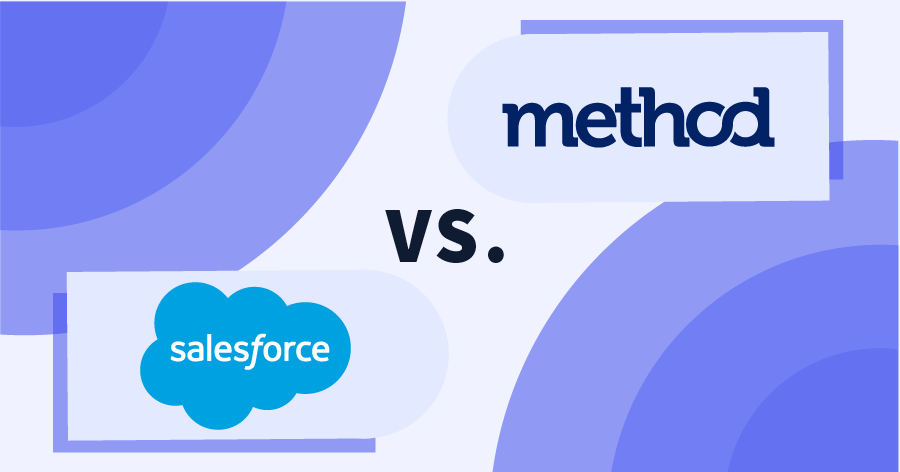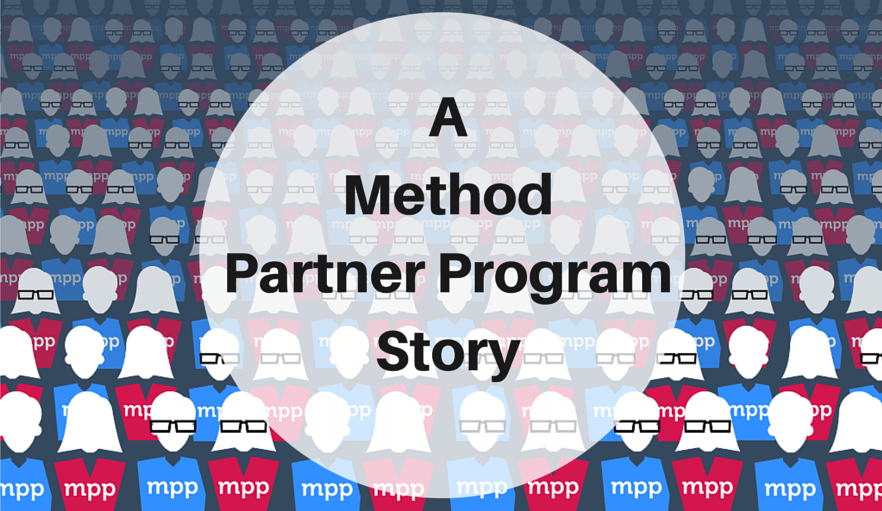Choosing a CRM can be difficult because there are plenty of excellent programs on the market. If multiple options are rated highly for customer satisfaction, how should you go about picking the right one for you?
To cut through the confusion, concentrate first on your own business model. You’re looking for a CRM solution that best meets your own company’s needs. Keep in mind how your processes currently work, as well as the direction your business is heading in.
Since a CRM is an investment, you don’t want to outgrow the software in a few short years.
Ideally, you want a solution that can continue to evolve as your business grows.
You also want to keep your employees in mind as adopting new software means training current and future staff members on how to use it effectively.
You want to ensure that the vendor you choose can meet your needs for employee training as well as ongoing customer service and technical support.
As you narrow down your CRM options, it’s helpful to look at some side-by-side comparisons — and that’s where this article comes in.
In this post, you’ll compare Method:CRM and Salesforce Small Business Solutions.
The main difference between Method:CRM and Salesforce Small Business Solutions is the flexibility, level of personalization, and integration deepness each solution offers.
Keep reading to understand which online CRM system option is the right one for you.
(Looking for more CRM comparisons? Check out our posts on Method vs. Zoho and Method vs. Insightly!)
Jump to:
Key Features
Each CRM platform has certain key features that make up the core of the software. These features can vary significantly from one vendor to another. Keep your own team, industry, and current protocols in mind as you assess potential systems’ offerings. Here are the core features of Method:CRM and Salesforce Small Business Solutions.
Method
- Built exclusively for QuickBooks and Xero users: One of Method’s defining features is that it has a deep two-way sync with QuickBooks. This gives businesses easy access to their accounting and customer data at all times, without concerns about missing information or double data entry.
- Centralized lead management: Method’s web-to-lead forms and email integrations help you automate lead collection. And with all of your data in one place, it’s easier to convert more leads to customers.
- Streamlined process management: Automated workflows and built-in customer portals allow you to serve customers efficiently and get paid faster.
- Top-notch customer management: Method gives you a 360-degree view of each customer’s history, which helps you build customer loyalty and drive repeat business.
- Enterprise software without enterprise pricing: Method is 100% customizable, which allows small and medium-sized businesses to create unique workflows that can adapt as their business needs change.
Salesforce
- Sell: The Salesforce CRM for small businesses is built to help you get started quickly. There is a wide variety of tools available to help you close deals and convert leads to customers.
- Service: Salesforce helps you connect with your customers and gain deeper insights into their needs. This allows you to provide more robust service for greater customer satisfaction.
- Market: Salesforce’s marketing automation tools make it easy and efficient to build your pipeline, amplify your message and build on your success.
- Connect: Get more out of Salesforce by connecting it with the other apps you use to run your business.
Targeted Industries
When investing in a new CRM, it’s good to check whether the vendor has any experience with customers in your industry. If you’re looking for an out-of-the-box solution, it’s a good sign when the product is used by businesses similar to yours.
Method
Method specializes in solutions for small and medium-sized businesses across many industries, including manufacturing, nonprofit, construction, accounting, and field services.
Salesforce
That’s Method – but what type of CRM is Salesforce?
Salesforce has customers in a wide range of industries. Some examples include banking, communications, consumer goods, government, media, manufacturing, retail, and nonprofit.
Software Integrations
It’s important to consider whether a potential CRM can integrate with your current tools. Most CRM solutions today are designed to integrate seamlessly with common business applications and programs. This makes it easier to adopt a new system and ensures that none of your data falls through the cracks. Here are some of the software integrations available for Method and Salesforce.
Method
- QuickBooks: Method is the CRM industry leader for QuickBooks integration. It works with all versions of QuickBooks Online, Pro, Premier, and Enterprise. The powerful two-way sync allows customer, vendor and transaction data to move seamlessly between your CRM and QuickBooks in real time.
- Gmail: Method’s free Sidebar for Gmail brings your CRM into your Gmail inbox. View your entire relationship with a customer or lead at a glance, from past conversations to overdue invoices. You can also create new CRM contacts, activities, and opportunities directly from the Sidebar — no need to switch between tabs.
- Outlook: Much like the Gmail Sidebar, this free add-in brings your Method data into Outlook. When you open an email from a customer or lead, the add-in provides a convenient overview of their history with your company, including transactions, opportunities, and more. You can also save new data directly to Method without leaving Outlook.
- Mailchimp: Don’t waste time exporting CRM contacts and manually uploading them to Mailchimp. Instead, this convenient integration lets you send contact lists from Method to Mailchimp in just a few clicks.
- Google Calendar: The two-way sync between Method and Google Calendar allows you to create, view and update CRM activities on whichever calendar you prefer.
Salesforce
Extend the power of Salesforce by integrating with a wide variety of business systems and applications. The full selection can be found on the Salesforce AppExchange. Some examples of apps that integrate with Salesforce include Campaign Monitor (for email marketing), Distribution Engine (for lead assignment and opportunity routing), FinancialForce (for accounting and financial management), and GetFeedback (for customer surveys).
Other Noteworthy Features
Many CRMs have features that go beyond simple customer relationship management. And for many businesses, these can be the features that truly set a CRM apart from its competitors. Here’s what makes Method and Salesforce special.
Method
Method:CRM is built on a 100% customizable, no-code platform. This means you can adapt it to better suit your needs — either through DIY customization or by working with one of Method’s customization experts. The possibilities are huge, ranging from adding new fields and automating workflows all the way to building brand-new apps. And when combined with the deep QuickBooks integration, Method has the power to become much more than a CRM.
Salesforce
Perhaps the biggest difference between traditional CRM and Salesforce CRM is that Salesforce offers a huge range of app integrations available on its AppExchange.
If you’re interested in exploring more niche features like how to use a profile comparator for Salesforce, these third-party integrations are useful.
Users can also harness the power of artificial intelligence in Salesforce using Einstein. Einstein is a smart CRM assistant built into every aspect of the Salesforce platform, allowing sales reps, service agents, and marketers to work more productively.
Free Trial Opportunities
You should always take advantage of free trial opportunities before making your final decision to invest in a software solution. Use these trial periods to explore a CRM’s features, get a feel for the interface, and assess how usable the program will be in your day-to-day operations.
Method
Method offers a 14-day free trial that lets users fully explore the functionality of the system. No contract or credit card is required to sign up. The free trial also includes a free hour of customization services with an in-house expert; this lets you see the true potential of customizing Method for your business. To begin the trial, you must sync your QuickBooks data with your Method account.
Salesforce
Salesforce also offers a 14-day free trial with no credit card information required. If you ultimately sign up for a full year, you also get three months of G Suite at no additional charge.
Pricing Options
Most CRM vendors offer a variety of pricing packages. This allows smaller businesses to choose an option that suits their budget while leaving room to grow. As your business needs evolve, you can upgrade to a more advanced plan.
Method
Method offers two subscription plans — Contact Management and CRM Pro. Both plans are available on an annual or monthly basis, with no contract required for the monthly basis.
The Contact Management plan is $25/user/month billed annually or $28/user/month billed monthly. This plan includes everything you need to get started with customer relationship management, including QuickBooks sync, contact management, customer self-service portals, and unlimited customization potential.
The CRM Pro plan is $44/user/month billed annually or $49/user/month billed monthly. This plan includes all of the features of the Contact Management plan, plus QuickBooks sales transactions, online payment portals, sales pipeline management, and web-to-lead forms.
Customers can add modules for QuickBooks purchase transactions, email campaigns, and case management to either plan for $10/user/month billed annually or $12/user/month billed monthly.
Salesforce
But how much does Salesforce cost for small business customers?
Salesforce Small Business Solutions is available in three different plans. All plans include lead management, customer and sales management, configurable reports and dashboards, and the Salesforce mobile app.
The Salesforce Essentials plan ($25/user/month) is an out-of-the-box CRM for up to 5 users. This plan includes account and contact management, case auto-assignment and basic omnichannel routing.
The Lightning Professional plan ($75/user/month; annual contract required) is a complete CRM for any size team. On top of the Salesforce Essentials features, it adds lead assignment and routing, enhanced team collaboration, and the ability to connect sales information to all of your apps.
The Lightning Enterprise plan ($150/user/month; annual contract required) is a deeply customizable sales CRM. It offers more accurate forecasting, advanced reporting features, and access to the sales console app.
Customer Support
No matter which CRM you choose, you’ll likely run into questions or problems on occasion. Not being able to access, edit, or understand your customer data can virtually halt your business. For this reason, it’s essential to select a CRM that offers an adequate level of customer support.
Method
Method offers a variety of support resources for customers, including 24/7 access to online help articles, webinars, and customization guidelines. Live support is available to all paid and trial CRM customers; users can reach support reps by phone, live chat, and email Monday through Friday from 9 am to 6 pm EST. Users can also take advantage of unlimited one-on-one demos and training with Method’s customer success managers.
Salesforce
All Salesforce subscriptions include their Standard Success Plan, which helps customers get up and running with the CRM. Resources include self-guided learning, online technical support and customer communities. All customers can submit online support requests, with a guaranteed response within two days. 24/7 toll-free phone support and access to premier success resources are available to Lightning Professional and Lightning Enterprise customers at an additional cost.
Conclusion
Choosing the best CRM for your business can be tricky. Both Method and Salesforce are highly rated options that promise great customer satisfaction. However, each platform has its own unique strengths.
Salesforce’s Small Business Solutions CRM is an excellent out-of-the-box solution that allows for quick and easy setup.
Small businesses can work more efficiently by integrating the CRM with the other business applications they currently use.
People often ask, “why is Salesforce better than other CRM systems?” But assuming this based on the software’s popularity can be dangerous for your business. Salesforce is very reliable for some companies, but it isn’t a one-size-fits-all solution.
Method is the ideal solution for small businesses that rely on QuickBooks. The combination of the deep QuickBooks integration and highly customizable platform lets businesses develop completely personalized workflows. Method also offers free telephone support to help users get the most out of their CRM experience.
Ultimately, working with Salesforce Sales Cloud vs QuickBooks Online Advanced (which Method excels with) comes down to personal preference.
In the end, the best CRM is the one that helps your business work more productively.
Sign up for a free trial and see what works for you!






